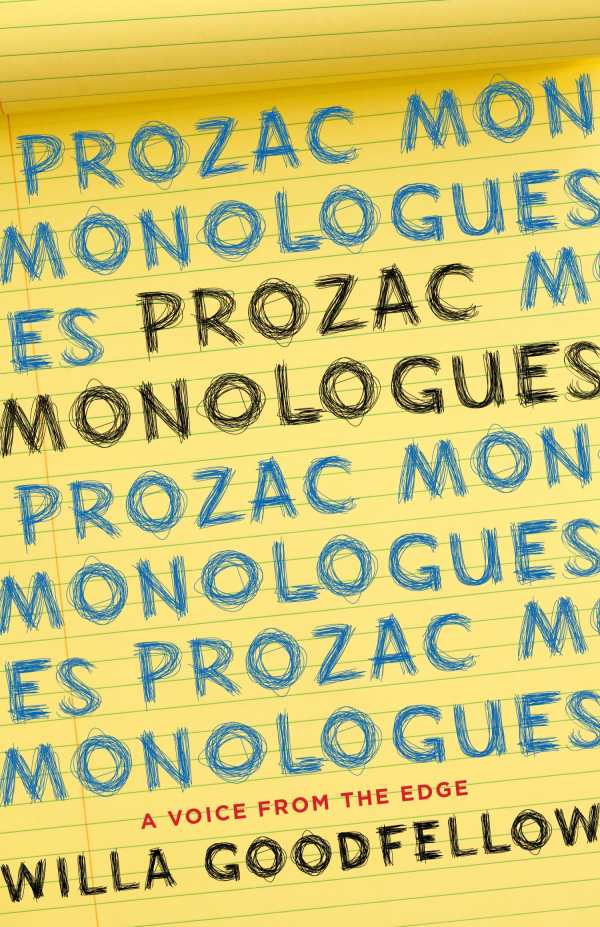Prozac Monologues
A Voice from the Edge
Prozac Monologues is an informative memoir about dealing with bipolar disorder, the misconceptions around mood disorders, and effective treatment.
Willa Goodfellow’s compelling memoir, Prozac Monologues, reveals how common it is for people on the bipolar spectrum to be misdiagnosed with major depression.
Early in the book, Goodfellow, an Episcopal priest, is taking Prozac for long-term depression and fantasizing about sticking a nail file in her doctor’s neck. Disturbed by her situation, and doubtful that antidepressants were treating her symptoms, she stopped taking Prozac. Within the book, this moment stands out.
Soon after, Goodfellow spent a Costa Rican holiday writing much of this series of essays in an attempt to understand the true nature of her condition. Later, she was diagnosed with Bipolar II. This book charts her experiences with misdiagnoses and treatment, which locked her into a lengthy and damaging cycle, but also sent her toward recovery.
The book is structured as a series of essays, whose insights and connected resources could function as a reference for people who have been diagnosed with major depression, but who might be on the bipolar spectrum, themselves. Its ten monologues are differentiated by subtitles and dates of authorship, and each is followed by a short chapter, called “A Voice from the Edge,” with information gathered from Goodfellow’s research into the bipolar brain, as well as insights gained from her life on the bipolar spectrum.
The monologues are free association in style, and their tone is conversational, mirroring bipolar mood cycling and cutting through medical jargon. They present bipolar as a condition that can be managed, versus one to be feared. One monologue concentrates on what it calls the delusional element of modern life, with a comedic description of how any sane person might rely on Prozac to get off the couch toward realities like long commutes and work in cubicles. A later meditation on medication finds Goodfellow continuing on a “pharmaceutical quest for happiness and contentment,” the quality of her life improved tenfold after being correctly diagnosed and treated with mood stabilizers.
Within the book, humor is often employed to make light of serious situations, while peripheral characters offer sobering testaments and provide guidance and support to Goodfellow on her four-step road to recovery. These characters include Steve, a young man who visits her in a dream and who represents depression, and Goodfellow’s wife, who rescues her when she is flummoxed.
The book’s information is easy to understand and digest, resulting in a clear idea of bipolar disorder. Prozac Monologues is an informative memoir about dealing with the condition, misconceptions around mood disorders, and effective treatment.
Reviewed by
Bianca Bowers
Disclosure: This article is not an endorsement, but a review. The publisher of this book provided free copies of the book and paid a small fee to have their book reviewed by a professional reviewer. Foreword Reviews and Clarion Reviews make no guarantee that the publisher will receive a positive review. Foreword Magazine, Inc. is disclosing this in accordance with the Federal Trade Commission’s 16 CFR, Part 255.

